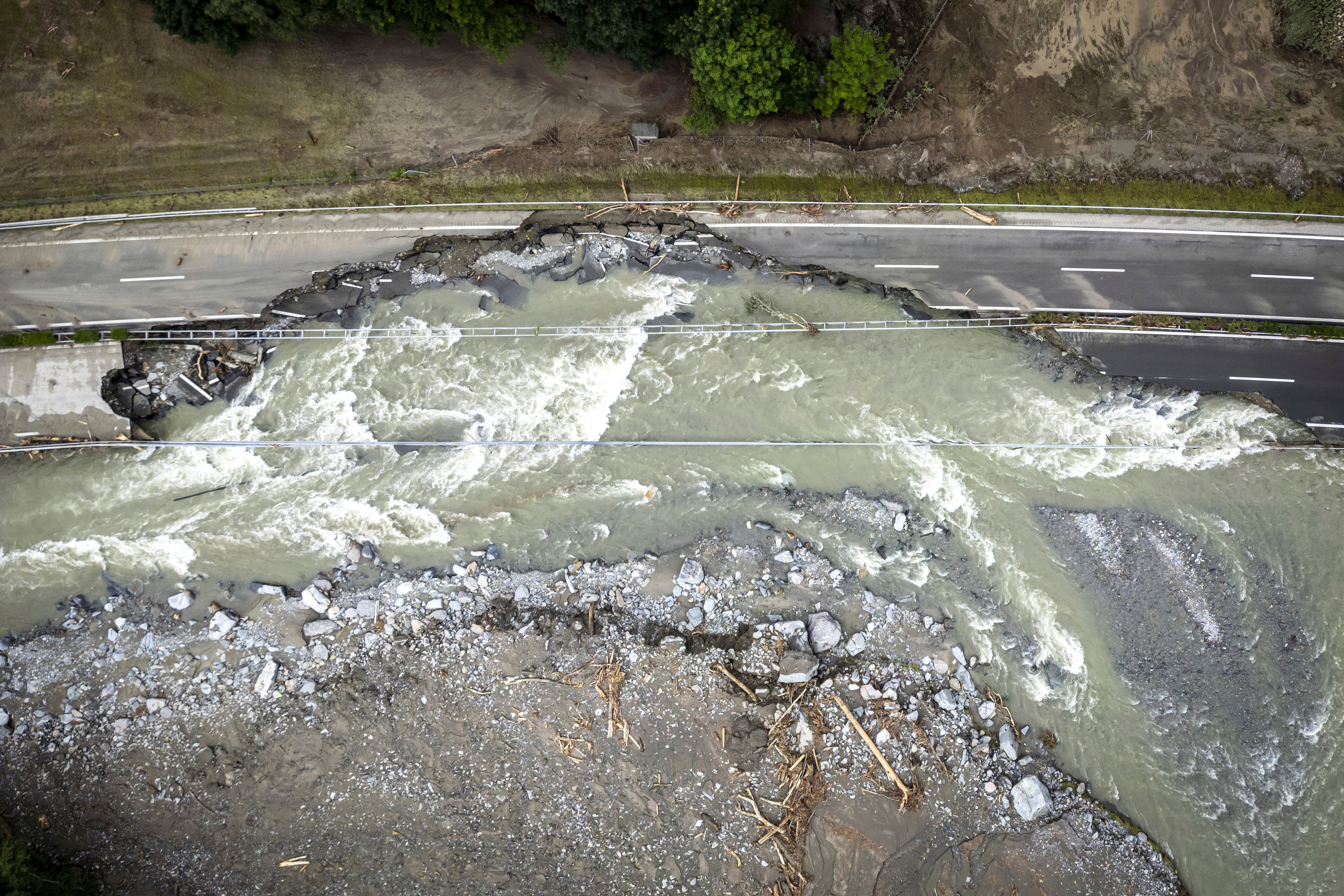The body of one of three people missing after massive thunderstorms and rainfall caused a rockslide in the southeast of Switzerland has been found.
The other two are still missing, Swiss police said.
One woman was pulled out alive from the rubble earlier on Saturday morning.
“Today is a sad day,” said Ignazio Cassis, member of the Swiss Federal Council, who addressed reporters Sunday after traveling to the region to show solidarity with the victims on behalf of the Swiss Federal Government.
A team of 200 rescuers has been searching for the missing people since Saturday with excavators, specially-trained search dogs, drones and army helicopters. But the likelihood of finding them alive is low, William Kloter from the Swiss police, who is heading the rescue operations, told reporters Sunday.
Search operations had to be halted during the night due to heavy rain.

The rockslide hit a group of three houses in the municipality of Lostallo in the Alpine valley of Misox in Graubünden.
Swiss authorities also said that a segment of the Swiss motorway A13 leading towards Italy had been completely submerged and destroyed by flooding. The major transit route between the key San Bernardino Pass and Roveredo in Graubünden will likely remain closed for several months.
In the west, the resort of Zermatt has been isolated by flooding as train links between Visp and the town were suspended. The road between Täsch and Zermatt were also closed.
Footage from the town, which lies at the base of the iconic Matterhorn mountain, showed floodwaters raging through the streets on Friday.
In stark contrast a major power outage hit Montenegro, Bosnia, Albania and most of Croatia’s coast on Friday, disrupting businesses, shutting down traffic lights and leaving people sweltering without air conditioning in the middle of a heatwave.
Montenegro’s energy minister said the shutdown was caused by a sudden increase in power consumption brought on by high temperatures, and by the heat itself overloading systems. Power distribution is linked across the Balkans for transfers and trading.
“This was just waiting to happen in this heat,” Gentiana, a 24-year-old student in Montenegro’s capital Podgorica, told Reuters. Temperatures hit 40 degrees Celsius (104 degrees Fahrenheit) across the southeastern European region.
Electricity and wifi networks went down from around 1 p.m. (1100 GMT), officials and social media users said. Suppliers in the four countries said they started restoring supply by mid-afternoon and power was largely back by the evening.
